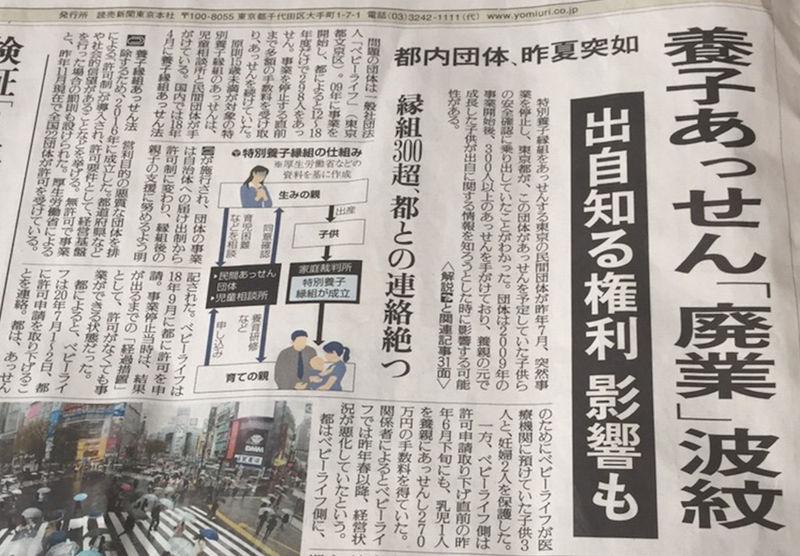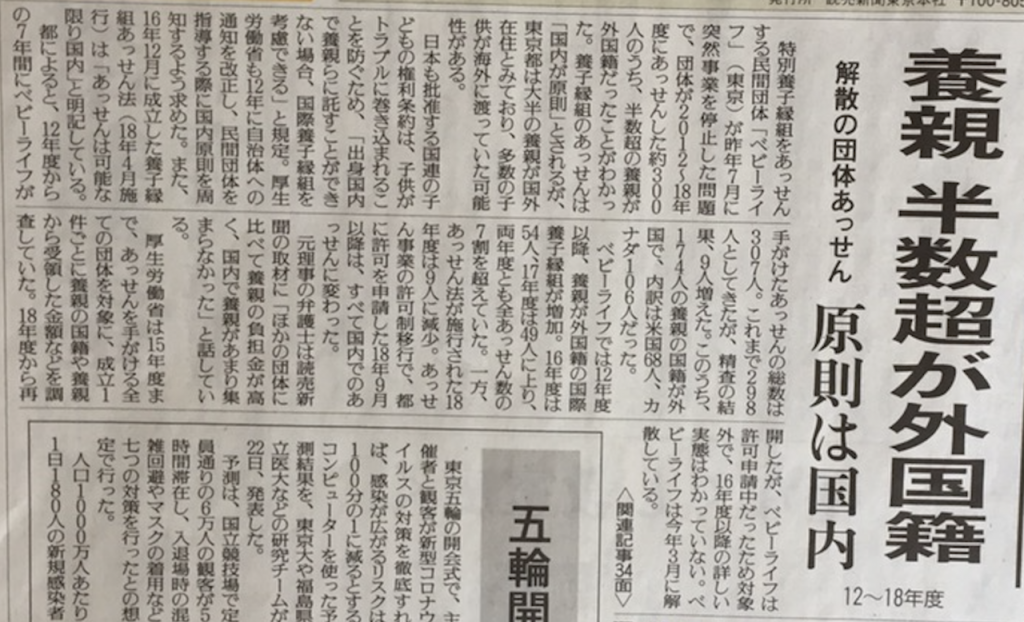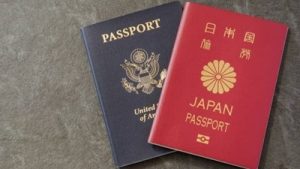養子縁組業者の廃業
300以上の養子縁組を仲介してきた東京の民間団体「ベビーライフ」が昨年7月に突然事業を停止。混乱が広がってます。
見出し:Tokyo adoption agency’s sudden closure causes stir
※cause stir=騒ぎを起こす、波紋を呼ぶ
Baby Life, based in Bunkyo Ward, was launched in 2009 and had mediated the adoptions(養子縁組を仲介する) of more than 300 children.
※mediate=調停する、仲介する、取り次ぐ 語源は間に入る。 →intercede/act as a go-between
According to the metropolitan government, Baby Life matched more than 300 children with adoptive families.
※養子はadopted childで、養親はadoptive parent/family adoptiveは(父や母が)養子関係の
廃業直前まであっせんは続いていたようです。
In late June last year Baby Life matched an infant with adoptive parents, receiving ¥2.7 million in commission.
※infant=乳児 新生児=newborn
特別養子縁組は、養子と実方の父母及びその血族との親族関係が終了します。
The legal relationship between an adopted child and his/her natural parents and relative by bloods shall be extinguished by a ruling of special adoption.
※特別養子縁組=special adoption/plenary adoption
※plenary=全員出席の、完全な、絶対的な

養親の元で成長した子供が将来、出自の情報を知りたい時に影響する可能性があり、親たちは当惑しています。
見出し:Parents left in lurch on closure
※leave someone in the lurch 人を窮地に置き去りにする、困っている人を見捨てる
The sudden closure of a long-established adoption agency has perplexed parents who adopted children through the mediation.
※perplex=当惑させる、途方に暮れさせる →be at a loss, to be puzzled.
The agency was in possession of documents on the children's birth mothers, which are indispensable records for adopted children to learn about their backgrounds.
※生みの母親=birth mother→biological mother

養子縁組は国内が優先され、国際養子縁組は人身売買=child trafficking等から子を守るために、規制されています。しかしベビーライフは多くの国際養子縁組を行っていたこともわかりました。
Adoptions are supposed to take place domestically in principle.
Domestic adoption is prioritized to protect children from potential harm.
Effective regulation of intercountry adoption is essential to ensure the best possible solution for each and every child.
It is critical that commercial or criminal gain, fraud, child trafficking, and the deception of the birth parents do not play any part in the adoption process.
多くの子供が発展途上国から先進国に引き取られているのが国際養子縁組の現状です。
Globally, tens of thousands of children are adopted from one country to another every year, with the vast majority of them being adopted from developing to developed countries.


